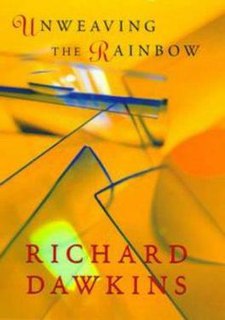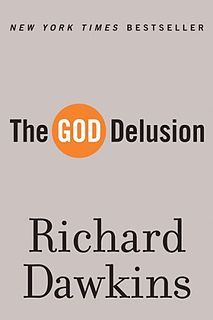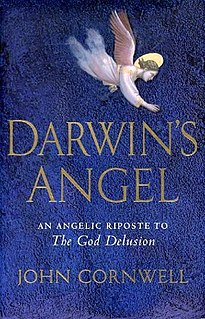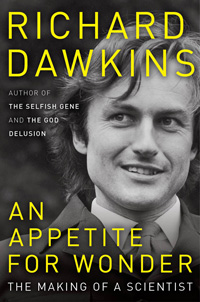Reviews
Early reviews were mixed. Marek Kohn of The Independent newspaper described it as warm and generous, [3] while Eric Liebetrau of the Boston Globe [4] states the book's title is "ultimately a misnomer, as much of the narrative is a slog." The satirical magazine Private Eye describes it as "profoundly irksome...colourless....The self-absorption is extraordinary." Instead of providing a reflective memoir Dawkins "huffs and harangues." [5] Leah Libresco Sargeant, writing for First Things , finds the book "invites comparisons with C. S. Lewis’ Surprised by Joy . Both are memoirs by thinkers who seemed a little surprised to end up as apologists, much less as writers whom growing numbers would credit with their conversion or de-conversion." [6]
In a review described by theologian Peter Leithart as "the very definition of withering", [7] philosopher John Gray, writing in The New Republic , criticized the book's "tone of indulgent superiority" and "Dawkins' inveterate literal-mindedness," and commented that Dawkins "writes well – fluently, vividly, and at times with considerable power. But the ideas and the arguments that he presents are in no sense novel or original, and he seems unaware of the critiques of positivism that appeared in its Victorian heyday." [8] In his review, which was described by atheist philosopher Stephen Law as "embarrassingly awful", [9] Gray also criticized the frequent self-comparisons Dawkins makes to Darwin, writing "no two minds could be less alike" and that “(Darwin) understood science as an empirical investigation in which truth is never self-evident and theories are always provisional... Dawkins sees science as the triumph of certainty over superstition. But he shows very little interest in asking what scientific knowledge is or how it comes to be possible.” [8]
In The Independent, Brandon Robshaw describes the book as "[...] a generous appreciation and admiration of the qualities of others, as well as a transparent love of life, literature – and science". [10]

Richard Dawkins is a British ethologist, evolutionary biologist, and author. He is an emeritus fellow of New College, Oxford, and was the University of Oxford's Professor for Public Understanding of Science from 1995 until 2008. An atheist, he is well known for his criticism of creationism and intelligent design.

The Extended Phenotype is a 1982 book by the evolutionary biologist Richard Dawkins, in which the author introduced a biological concept of the same name. The main idea is that phenotype should not be limited to biological processes such as protein biosynthesis or tissue growth, but extended to include all effects that a gene has on its environment, inside or outside the body of the individual organism.

Unweaving the Rainbow: Science, Delusion and the Appetite for Wonder is a 1998 book by the evolutionary biologist Richard Dawkins, in which the author discusses the relationship between science and the arts from the perspective of a scientist.

Lawrence Maxwell Krauss is an American-Canadian theoretical physicist and cosmologist who previously taught at Arizona State University, Yale University, and Case Western Reserve University. He founded ASU's Origins Project, now called ASU Interplanetary Initiative, to investigate fundamental questions about the universe and served as the project's director.

Alister Edgar McGrath is a Northern Irish theologian, priest, intellectual historian, scientist, Christian apologist, and public intellectual. He currently holds the Andreas Idreos Professorship in Science and Religion in the Faculty of Theology and Religion, and is a fellow of Harris Manchester College at the University of Oxford, and is Professor of Divinity at Gresham College. He was previously Professor of Theology, Ministry, and Education at King's College London and Head of the Centre for Theology, Religion and Culture, Professor of Historical Theology at the University of Oxford, and was principal of Wycliffe Hall, Oxford, until 2005. He is an Anglican priest.

Samuel Benjamin Harris is an American author, philosopher, neuroscientist, and podcast host. His work touches on a wide range of topics, including rationality, religion, ethics, free will, neuroscience, meditation, psychedelics, philosophy of mind, politics, terrorism, and artificial intelligence. Harris came to prominence for his criticism of religion, and Islam in particular, and is described as one of the "Four Horsemen of the Non-Apocalypse", along with Richard Dawkins, Christopher Hitchens, and Daniel Dennett.

The Root of All Evil?, later retitled The God Delusion, is a television documentary written and presented by Richard Dawkins in which he argues that humanity would be better off without religion or belief in God.

Richard Dawkins: How a Scientist Changed the Way We Think is a festschrift of 25 essays written in recognition of the life and work of Richard Dawkins. It was published in 2006, to coincide with the 30th anniversary of the publication of The Selfish Gene. A wide range of topics is covered from many fields including evolutionary biology, philosophy, and psychology. Space is also given to writers who are not in full agreement with Dawkins. The book is edited by two of Dawkins' former PhD students, Alan Grafen and Mark Ridley. (ISBN 9780199291168)
The term Jewish lobby is used to describe organized lobbying attributed to Jews on domestic and foreign policy decisions, as political participants of representative government, conducted predominantly in the Jewish diaspora in a number of Western countries. When used to allege disproportionately favorable Jewish influence, it can be perceived as pejorative or as constituting antisemitism.
"Go God Go" is the twelfth episode in the tenth season of the American animated television series South Park. The 151st episode of the series overall, it originally aired on Comedy Central in the United States on November 1, 2006. The episode is the first in a two-part story arc, which concludes with "Go God Go XII".

Darwin's Angel is a book published in response to Richard Dawkins' The God Delusion. It was written by John Cornwell and subtitled An Angelic Riposte to The God Delusion.

The Oxford Book of Modern Science Writing is an anthology of scientific writings, arranged and introduced by Richard Dawkins of the University of Oxford. Published first in March 2008, it contains 83 writings on many topics from a diverse variety of authors, which range in length from one to eight pages. All inclusions are dated post-1900, and include poetry, anecdotes, and general philosophical musings.

The Greatest Show on Earth: The Evidence for Evolution is a 2009 book by British biologist Richard Dawkins, which was released on 3 September 2009 in the UK and on 22 September 2009 in the US. It sets out the evidence for biological evolution, and is Dawkins's 10th book, following his best-selling critique of religion The God Delusion (2006) and The Ancestor's Tale (2004), which traced human ancestry back to the dawn of life.
Atheist feminism is a branch of feminism that also advocates atheism. Atheist feminists hold that religion is a prominent source of female oppression and inequality, believing that the majority of the religions are sexist and oppressive towards women.
The term New Atheism was coined by the journalist Gary Wolf in 2006 to describe the positions promoted by some atheists of the twenty-first century. This modern-day atheism is advanced by a group of thinkers and writers who advocate the view that superstition, religion and irrationalism should not simply be tolerated but should be countered, criticized, and challenged by rational argument wherever they exert undue influence, such as in government, education, and politics.
Over Norton Park is a farm of 210 acres at Over Norton, lying to the north of Chipping Norton, Oxfordshire, England. It has been in the Dawkins family since the 1720s. Originally a larger country estate, it was inherited by John Dawkins (1915-2010), the father of the biologist Richard Dawkins, under whose management it became a single commercial farm which he farmed himself.

The Magic of Reality: How We Know What's Really True is a 2011 book by the British biologist Richard Dawkins, with illustrations by Dave McKean. The book was released on 15 September 2011 in the United Kingdom, and on 4 October 2011 in the United States.

A History of the Mind: Evolution and the Birth of Consciousness is a 1992 book about the mind–body problem by the psychologist Nicholas Humphrey. Humphrey advances a hypothesis about consciousness that has been criticised as speculative.

Richard Dawkins is an English ethologist, evolutionary biologist, and writer. Dawkins himself has stated that his political views are left-leaning. However, many of Dawkins's political statements have created controversy among left-wing and atheist communities.

Brief Candle in the Dark: My Life in Science is the second volume of the autobiographical memoir by British evolutionary biologist Richard Dawkins. It was published in English in September 2015.















